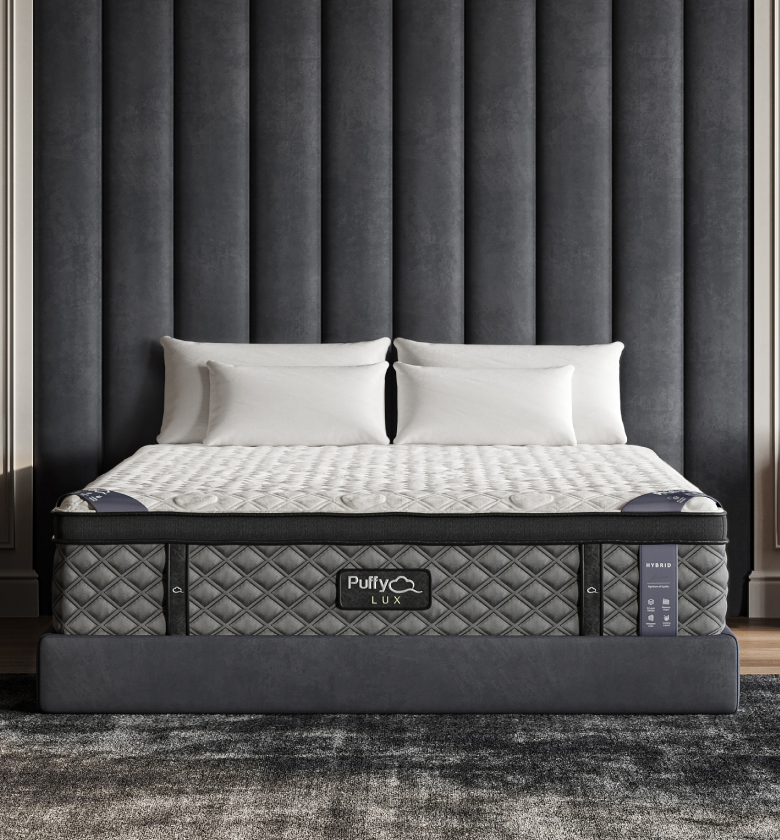Pregnancy brings a myriad of changes, not least of which is the need for restful sleep. Choosing the best mattress during this crucial time is vital for the comfort and health of expectant mothers. This comprehensive guide delves into what makes a mattress suitable for pregnancy, covering various aspects from firmness to safety.
What Type of Mattress is Best for Pregnancy?
Choosing the right mattress type during pregnancy is crucial for ensuring comfort and support during this transformative period.
Ideal Mattress Features for Pregnant Women
- Supportive Yet Gentle: A mattress that provides support to the spine while being gentle on pressure points.
- Adaptive to Body Changes: Materials like memory foam or latex, which contour to the body’s changing shape.
- Temperature Regulation: Features that help manage body temperature, beneficial during pregnancy-related heat fluctuations.
Recommended Mattress Types
- Memory Foam Mattresses: Excellent for pressure relief and adapting to body changes.
- Latex Mattresses: Offer a natural, hypoallergenic option with a supportive yet soft feel.
- Hybrid Mattresses: Combine the support of innerspring with the comfort of foam or latex.
Best Mattress During Pregnancy
Selecting the best mattress during pregnancy is about finding a balance between comfort, support, and health.
Leading Mattresses for Pregnancy
- The Therapeutic Memory Foam Mattress: Known for its pressure-relieving properties, crucial for pregnant women experiencing joint and back pain.
- The Eco-friendly Latex Mattress: Offers a chemical-free, breathable sleeping surface, ideal for temperature-sensitive pregnant women.
- The Adaptive Hybrid Mattress: Provides a mix of firm support and plush comfort, accommodating the varying needs during pregnancy.
Selection Criteria
- Firmness: A medium to medium-firm mattress often works best for pregnant women, providing necessary support without being too hard.
- Health and Safety: Look for mattresses free of harmful chemicals and certified for low VOC emissions.
- Size and Depth: Consider a larger size for extra space and a higher depth for easier access.
Pregnant women in search of the perfect mattress should consider the balanced support and comfort provided by a Puffy Lux Mattress. Their qualities of providing excellent support while being gentle on the body can be an ideal guideline in choosing the right pregnancy mattress.
Interested in how Puffy stacks up against other brands? Check out our mattress comparisons: Puffy vs Purple, Puffy vs Nectar, Puffy vs Casper, Puffy vs Leesa, Puffy vs Saatva, Puffy vs DreamCloud, and Puffy vs Tuft and Needle.
Soft or Firm Mattress for Pregnancy: Making the Right Choice
Deciding between a soft or firm mattress during pregnancy is crucial for ensuring the best sleep experience for expectant mothers.
Understanding the Importance of Mattress Firmness
- Support vs. Comfort: Firm mattresses offer better support for the spine, while soft mattresses provide more cushioning for pressure points.
- Changing Body Needs: Pregnancy brings changes in weight distribution and body shape, impacting mattress firmness preferences.
Guidelines for Selecting Mattress Firmness
- First Trimester: A medium-firm mattress can provide a balance of comfort and support.
- Second and Third Trimesters: As the belly grows, a softer mattress might offer better pressure relief.
- Body Weight and Sleep Position: Heavier body weights and side sleeping often require softer mattresses for adequate support and comfort.
Is It Safe to Sleep on a New Mattress When Pregnant?
Expectant mothers often wonder about the safety of sleeping on a new mattress, especially concerning off-gassing and materials.
Safety Considerations for New Mattresses
- Off-Gassing: Opt for mattresses with low VOC emissions and CertiPUR-US® certification.
- Material Safety: Choose mattresses free from harmful chemicals and allergens.
Check out Puffy mattress reviews from real customers and see how we compare with other brands.
Can a Pregnant Woman Sleep on an Air Mattress?
While not typically the first choice, air mattresses can be a practical option for pregnant women in certain scenarios.
Pros and Cons of Air Mattresses for Pregnant Women
-
Pros:
- Adjustable firmness to adapt to changing comfort needs.
- Portability for travel or temporary use.
-
Cons:
- Lack of consistent support compared to traditional mattresses.
- Potential for punctures and air loss.
Tips for Using an Air Mattress
- Enhance Comfort: Use a mattress topper to add extra cushioning and support.
- Regular Air Adjustment: Modify the air level to maintain the desired firmness and comfort.
- Proper Setup: Ensure the mattress is fully inflated and placed on a smooth surface to prevent any instability.
Pregnant women considering temporary sleeping solutions like air mattresses should remember the consistent support offered by Puffy mattresses. A mattress that maintains its shape and provides even support is crucial during pregnancy for restful sleep.
Use our store locator to find the closest furniture or mattress store near you and feel the cloudlike comfort of our Puffy Mattress in person.
Conclusion
Choosing the best mattress for pregnancy is a crucial decision impacting both maternal comfort and fetal health. By considering factors like mattress type, firmness, material safety, and individual comfort needs, expectant mothers can find a mattress that provides restful sleep during this important life stage.

- 8 layers of cloudlike luxury.
- Medium-plush feel.
- Gel-infused cooling.
- 101-night sleep trial.












